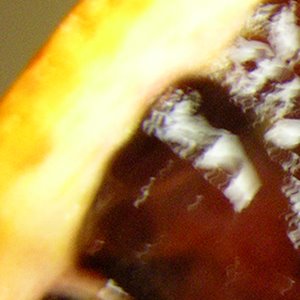Dear Readers,
It was brought to our attention by Sarah Zale, a Blood Orange Review contributor, that the "comment" option isn't functioning as it should in the blog; while we try to untangle the technical glich on our end, please find below her thoughtful, in-depth response to a recent blog.
---The editors
Regarding your comment, "Read!" reminded me that I received a note yesterday from the Edmonds Art Commission in Washington State, asking me to fill out a form titled "Judge a book by its lover!" A list of recommended books will be given to the participants during the Edmonds Writers Conference (Write on the Sound) next month. Alice Notley's The Descent of Alette immediately came to mind.
What better place for recommended books, as well, than a blog?
Notley's collection of poetry also speaks to the comment by H.K.H in this blog: "For years, I've wondered what turn literature is going to take in my lifetime." Personally, I'd like to see a list of recommended books that addresses this question. I offer the first book for this list.
Alice Notley, often associated with the second-generation New York School through her marriage to and work with Ted Berrigan, has lived in France since 1992, an expatriate perhaps, though she does not feel she fits any label, except poet (says Natasha Lehrer in the 2006 issue of Poets & Writers (I knew there was a reason to hold on to those old copies). The Descent of Alette, the culmination of her experimentation with form that began in the 1980's offers a moveable feast of material to digest about contemporary poetry. It presents new ways of using punctuation and language that opens doors to how poets might write in this new millennium.
This long sequence poem is a reverse allegory of Dante's Inferno. It relates a "story," as Notley describes the collection in the Author's Note. Apparently the poet does not mind at all labeling her work a narrative: ". . .this is a time when people want to be told stories, and my poetry is highly narrative" (Lehrer, 55). The story of Alette is narrated by the character, Alette, a woman both an individual and Everyone. She is on a journey to discover the true myth of humanity: not the one experienced by Dante, the one that we of the Western world have been living since the story of Adam and Eve.
Notley is involved in the process of creating or making meaning by setting the stage for this to occur with repetition, metaphor, and subtraction; all which serve as a means to invite the reader into an experience and allow him and her to be part of the creation process. The poet wants to tell a new version of Dante's Inferno. It makes sense, as suggested by Juliana Spahr and Joan Retallack in Poetry and Pedagogy: The Challenge of the Contemporary, how poetry that intends to make meaning rather than merely give meaning should come to us in a new form, and that "new form of writing implies a new form of reading."
Any other recommendations out there for poets wish to write for the new millennium?
Thursday, September 21, 2006
Subscribe to:
Post Comments (Atom)




No comments:
Post a Comment